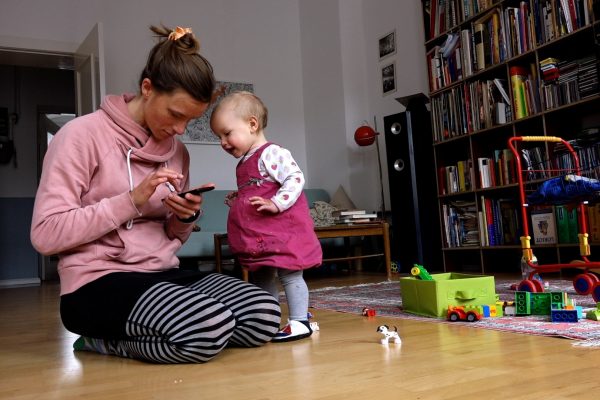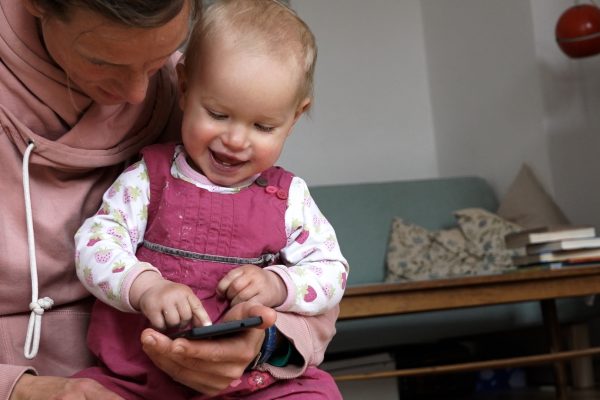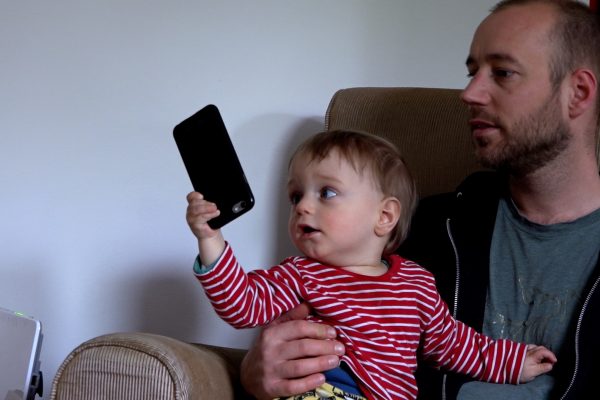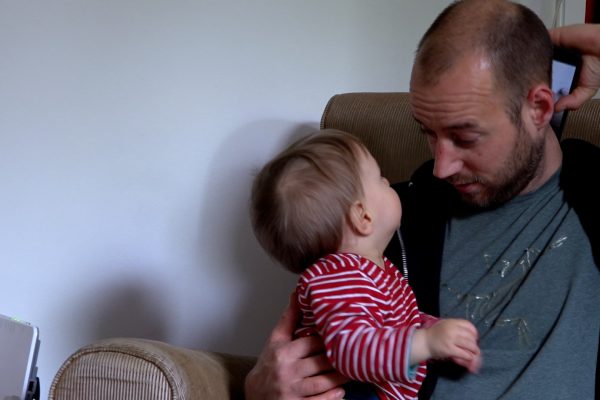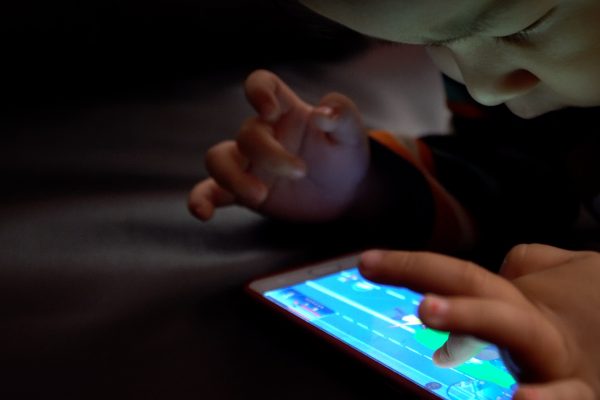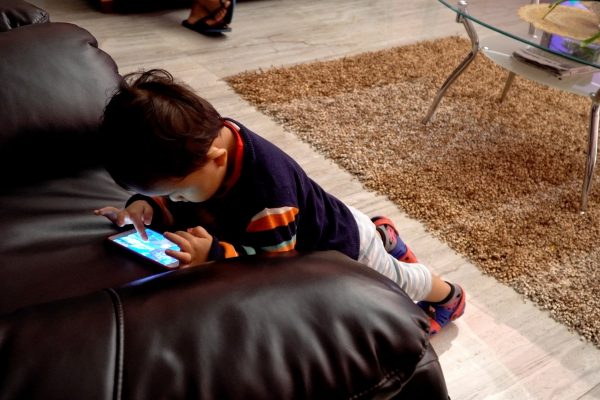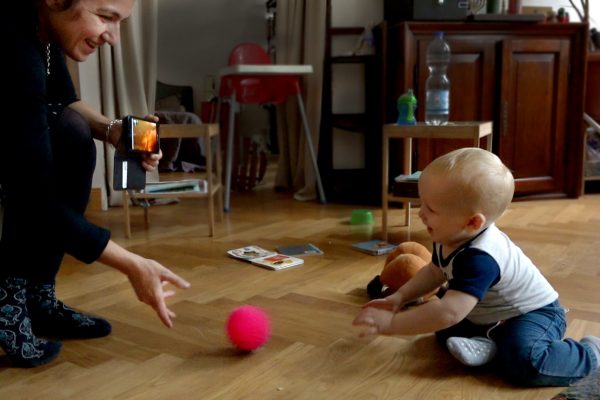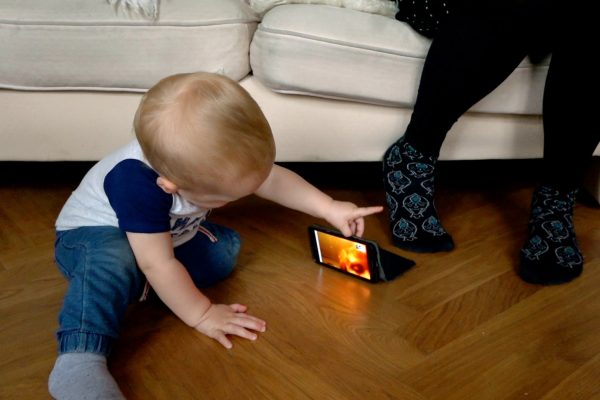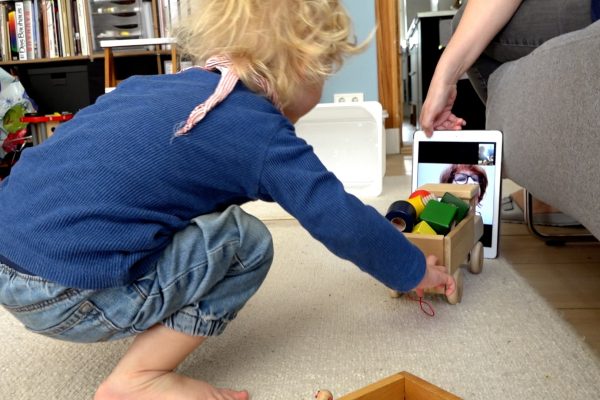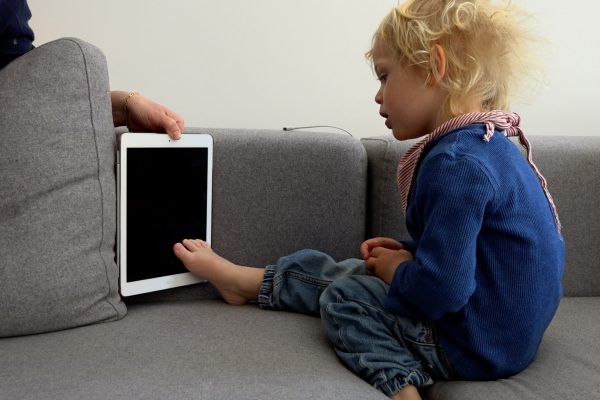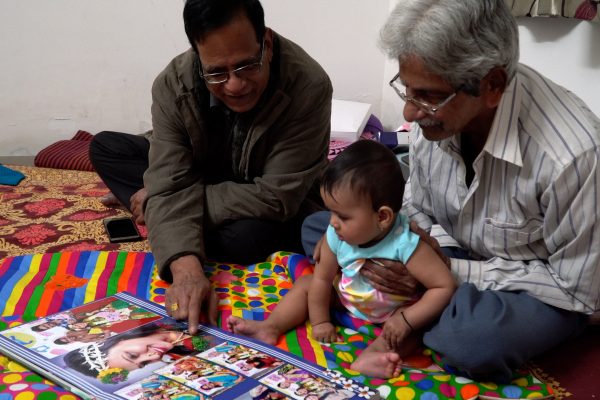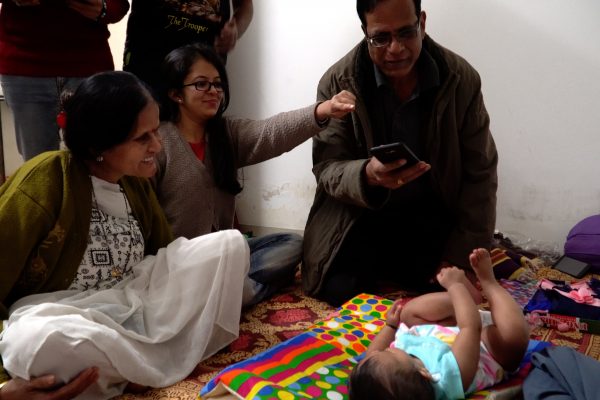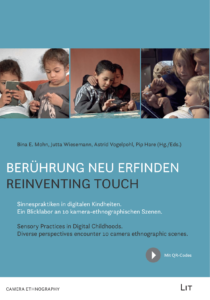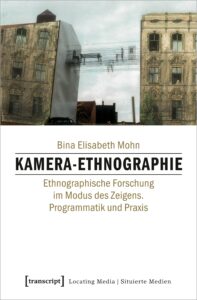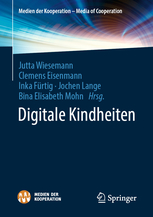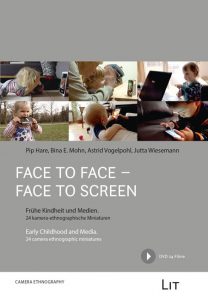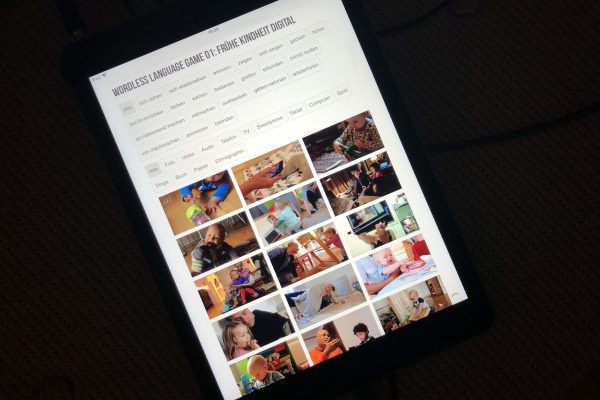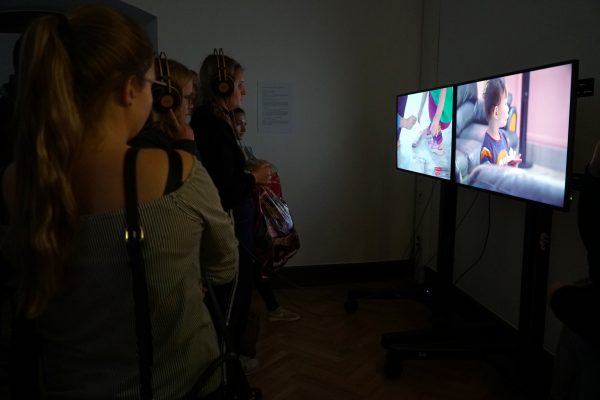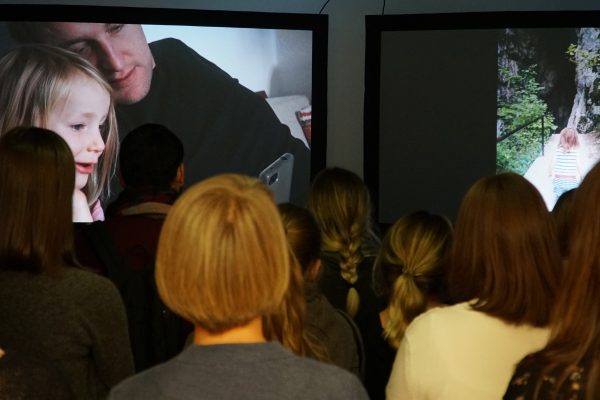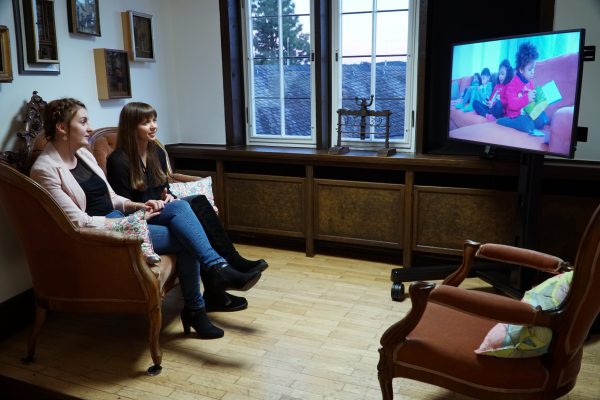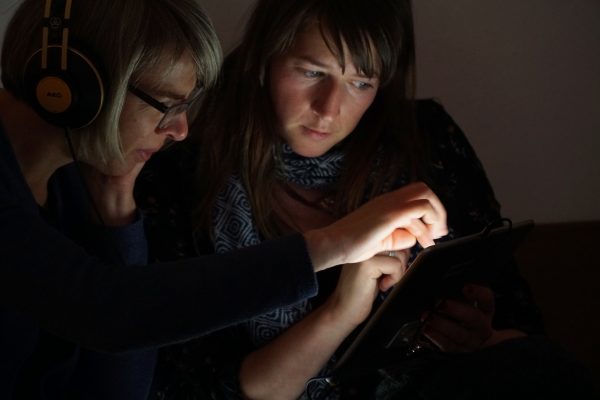B05 - Early childhood and smartphone. Family interaction order, learning processes and cooperation
Research focus of the 2nd phase (2020 – 2023)
Principal Investigators:
Researchers:
Astrid Vogelpohl (Diplom cultural education)
Student Assistants:
Former Researchers:
Our ongoing research is a long-term study in which we continue to work with our observations from the first phase (2016 – 2019).
What characterises childhood in the age of digital media? Since our project’s launch in 2016, we have been observing how infants and (young) children are involved in their families’ everyday media practices. Our objective is to identify and make visible transformations in everyday life and in children’s early learning processes. The observations we have made so far suggest that today’s children, together with their parents, are establishing new ways of appropriating their worlds. Our project focuses on children’s digitally enacted practices in order to empirically study the forms of learning that they entail. We are developing a performative concept of learning that facilitates analysis of how everyday practices involving media are changing.
We study digital media practices in families by means of the digital research practices of camera ethnography (Mohn): ethnographic showing. This includes further development of a self-reflexive concept of co-operation (Goodwin) in research, as well as the application of Wittgenstein’s notion of “perspicuous representation” (übersichtliche Darstellung) in creating arrangements of video fragments, which are digitally linked in open net-like structures. In the course of the second phase, we will undertake four cyclical research phases with fieldwork in diverse family settings. We produce audio-visual miniatures that make practices observable as “bundles of practices and material arrangements” (Schatzki). These miniatures then become the building blocks of micro-analyses and arrangements that structure research material showing media practices as learning. We invite diverse audiences into “looking laboratories” (Blicklaboratorien), bringing together research and public discourse.
Recent Events
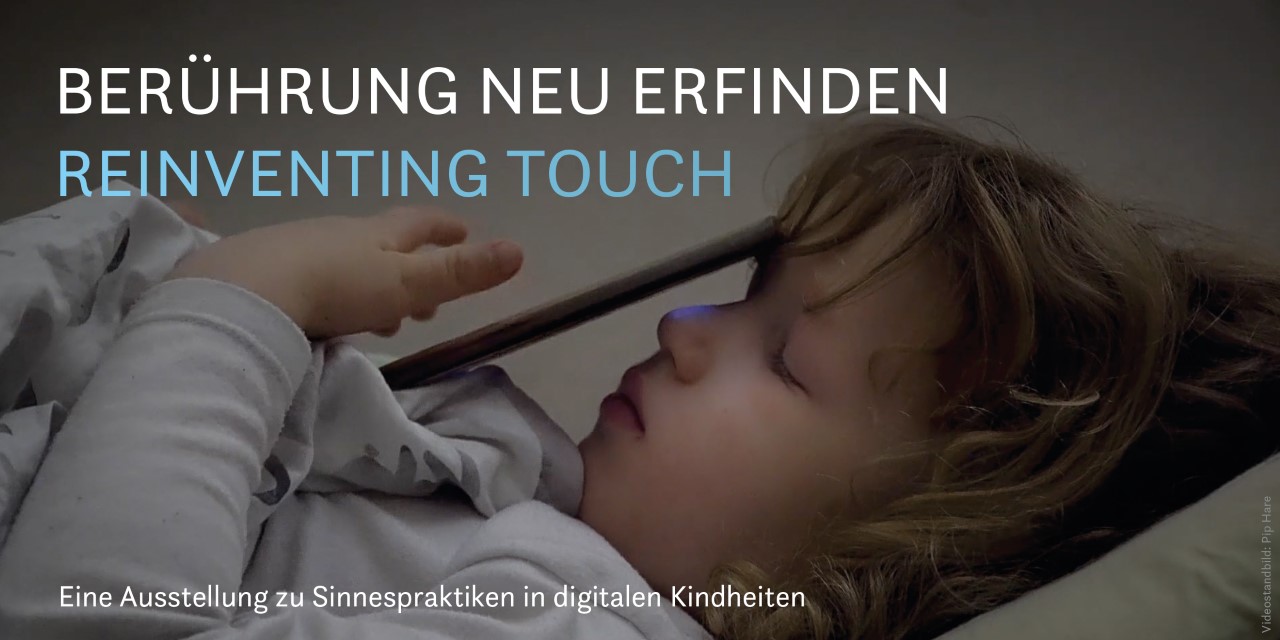
The exhibition “Reinventing Touch. Sensory practices in digital childhoods” was on show in Siegen in May and June 2023, presenting camera ethnographic research from the project “Early Childhood and Smartphone” to the general public. Specialists in the field of childhood studies and education were able to visit the exhibition in September 2023 during the 31st annual conference of the German Educational Research Association (GERA)’s subdivision Primary Education Research.
Participatory exhibits and video installations offered visitors different ways to immerse themselves in and explore, as co-researchers, themes around sensory practices in digital childhoods. Published at the same time, the book Reinventing Touch, which features the perspectives of researchers from different disciplines, served as the exhibition catalogue, while the exhibition transposed the themes raised in the book into live encounters in three-dimensional space. In both cases, diverse perspectives were brought into dialogue with one another.
Information about the exhibits
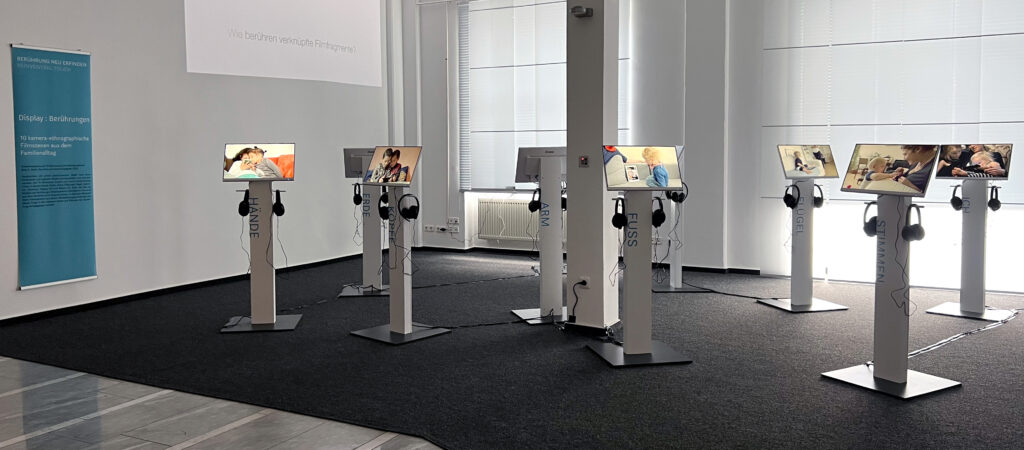
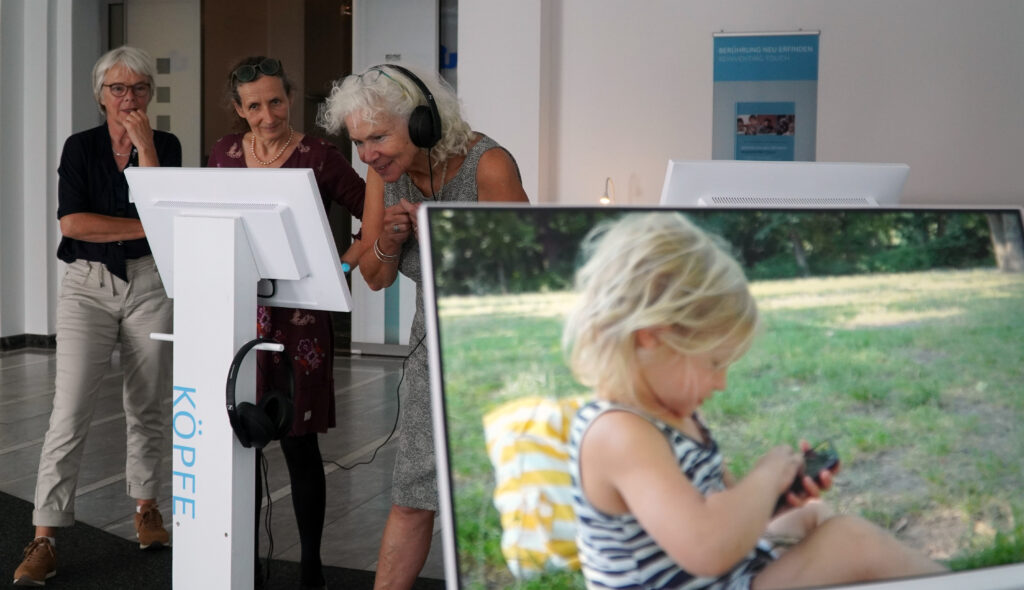
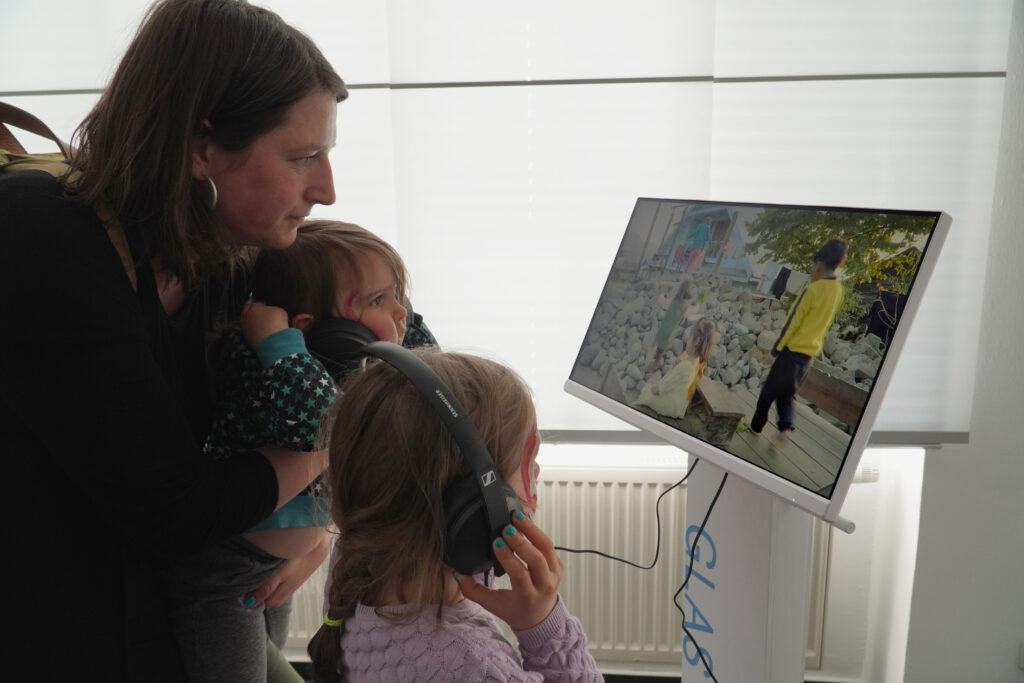
With Annika Gruhn and her children. Photo: Pip Hare.
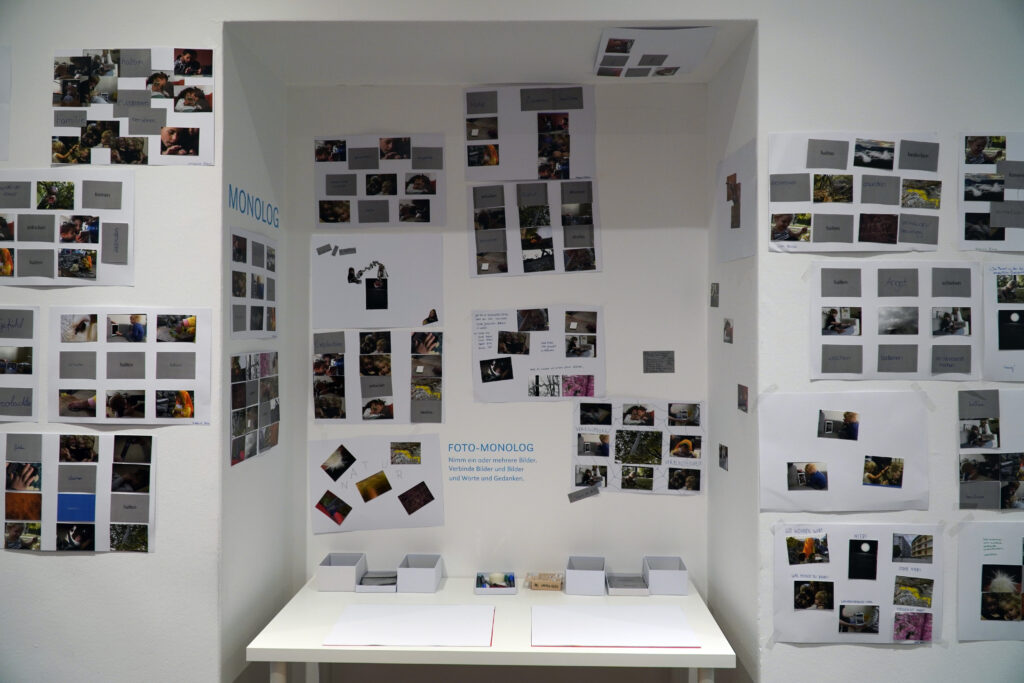
Recent Publications
Mohn, B. E., Wiesemann, J., Hare, P., Vogelpohl, A. (Eds.)
Berührung neu erfinden.
Sinnespraktiken in digitalen Kindheiten. Ein Blicklabor an 10 kamera-ethnographischen Szenen
Reinventing Touch.
Sensory Practices in Digital Childhoods. Diverse perspectives encounter 10 camera ethnographic scenes
Reihe: Camera Ethnography
Berlin, Münster, Wien, Zürich, London: LIT, 2023, ISBN 978-3-643-25034-6
What happens to touch when we come together digitally? This publication brings together diverse perspectives and approaches to interrogate the widespread contention that increasing digitalisation in childhood leads to tactile deprivation. The authors describe sensory practices in early childhood as media practices in which skin and screens, eyes and ears interact synergistically to bring forth sensorial events. The publication is built around 10 short films featuring touch. The combination of texts and films explores interrelationships between embodiment, materiality, and virtuality in digital childhoods. (c) LIT Verlag Berlin-Münster-Wien-Zürich-London.
Mohn, Bina Elisabeth. 2023.
Kamera-Ethnographie
Ethnographische Forschung im Modus des Zeigens. Programmatik und Praxis.
Reihe: Locating Media/Situierte Medien
Bielefeld: transcript, 2023, ISBN: 978-3-8394-3531-1
With numerous examples, the book refers to the testing of the camera-ethnographic approach in the context of collaborative camera ethnography, which has been carried out and methodologically reflected upon in subproject B05 since 2016. The situated notion of data represented in the SFB and the orientation of B05 of towards a research-reflexive notion of collaboration are constructively taken up and programmatically elaborated in this book together with a reflexive pragmatics and situated methodology.
Wiesemann, J., Eisenmann, C., Fürtig, I., Lange, J., Mohn, B. E. (Eds.) (2020)
Digitale Kindheiten
Reihe: Medien der Kooperation
Wiesbaden: Springer VS, 2020, ISBN 978-3-658-31725-6
Digital society is characterized by structural change across all aspects of social life. How are digital media integrated within contemporary childhoods? Offering diverse analyses of how family and childhood are constituted in and through media, this volume demonstrates the potential of ‘digital childhoods’ as a new research field of its own.
Hare, P., Mohn, B. E., Vogelpohl, A., Wiesemann, J. (Eds.)
Face to Face - Face to Screen
Early Childhood and Media. 24 camera ethnographic miniatures
Series: Camera Ethnography
Berlin, Münster, Wien, Zürich, London: LIT, 2019, ISBN 978-3-643-14299-3
With 24 short films, this catalogue and accompanying DVD offers insights into the fundamental ways that media practices in early childhood shape the development of self- and family identity and of children's relationships to people, objects, and their surroundings. The filmic miniatures and concise texts result from camera ethnographic observation and thick depiction undertaken by the authors in 14 families of different nationalities since 2016 as part of the collaborative research centre Media of Cooperation (University of Siegen). Viewers are invited to research for themselves the films that are grouped into four chapters.
(c) LIT Verlag Berlin-Münster-Wien-Zürich-London
Filmprojekt „Showing doing being Nauka“
Vogelpohl, Astrid. 2022. „Showing doing being Nauka“. A non-linear film project realised as part of a long-term study (doctoral research) on digital identity practices in early childhood.
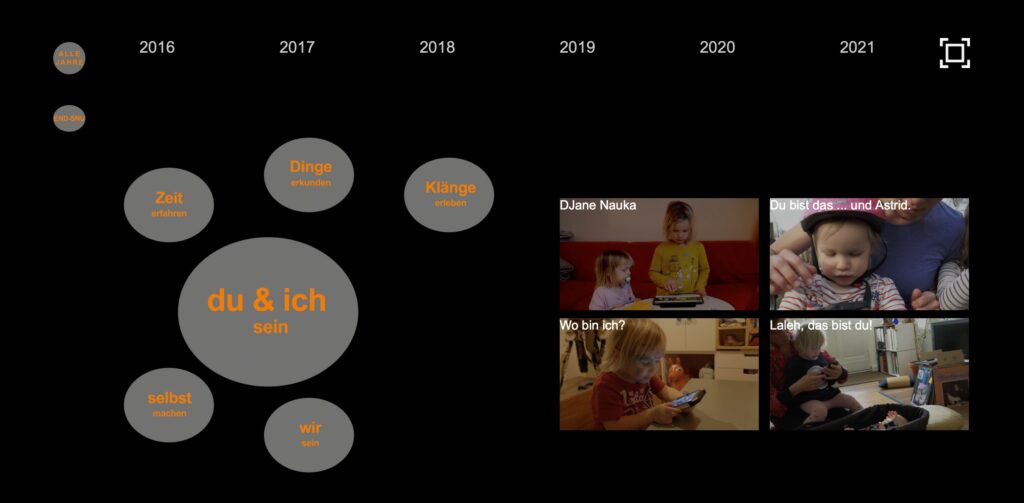
“Showing doing being Nauka” is a research project in the form of a non-linear interactive film. Rather than focusing on aspects relating to child development, as long-term studies often do, the observations that make up the film are arranged analytically in an open network structured by interrelated terms. To what extent, asks the film, can digital media practices in early childhood be understood as identity practices? What makes this project particularly compelling for both researchers and viewers is the way the Korsakow software used to create it makes use of algorithms to incorporate an element of randomness into the temporal narrative presented. This has a destabilising effect; not just by disrupting the causality of familiar film grammar but also by undermining the author’s control over the way her film is structured.
Exhibition „Das bist du!“ Early childhood digital
Wiesemann, Jutta, Pip Hare, Bina E. Mohn and Astrid Vogelpohl. 2018-2019. Ausstellung "Das bist du!" Early childhood digital. Siegerlandmuseum, Siegen (September 2018 - Januar 2019).
Results from the camera ethnography were digitally shown publicly in the form of the exhibition „Das bist Du!“ Frühe Kindheit digital (Siegerlandmuseum, Siegen, 16.09.2018 to 06.01.2019). The video installations of this exhibition also make it possible for a broader public to observe how digital media practices in early childhood constitute self-references, reference to others, factual relationships and family life.
